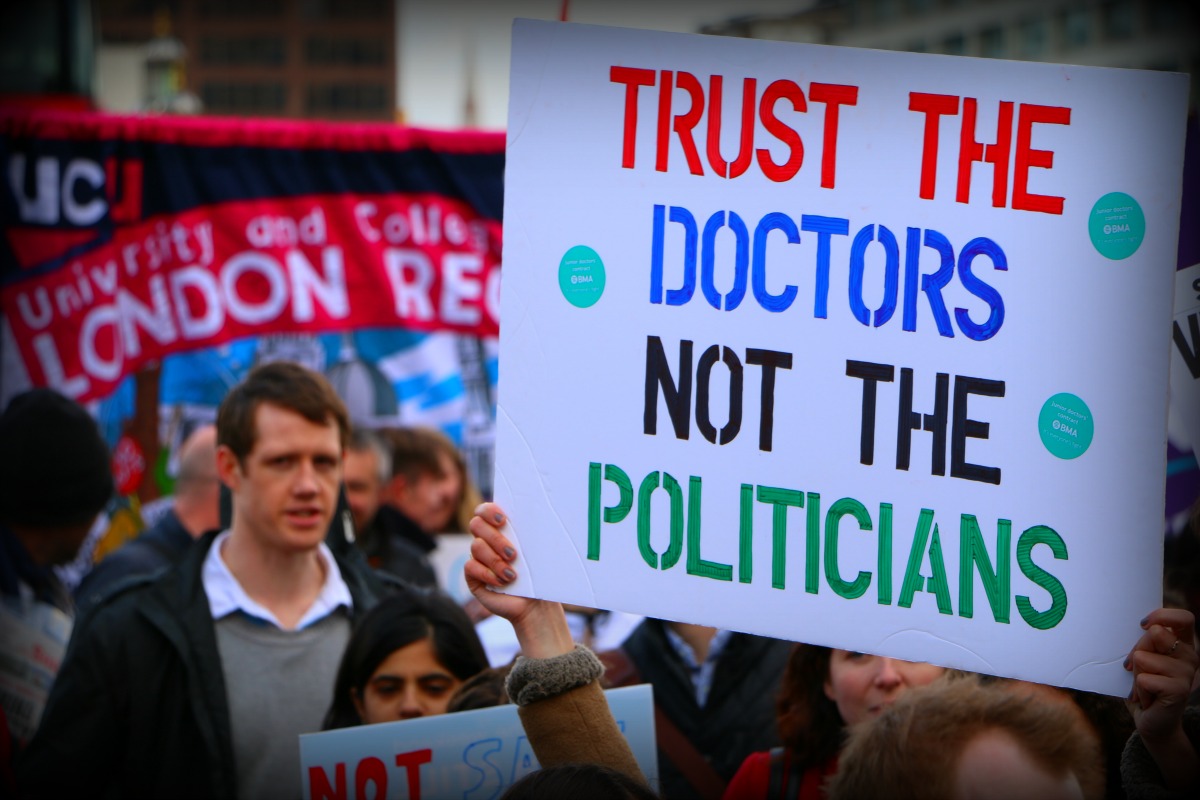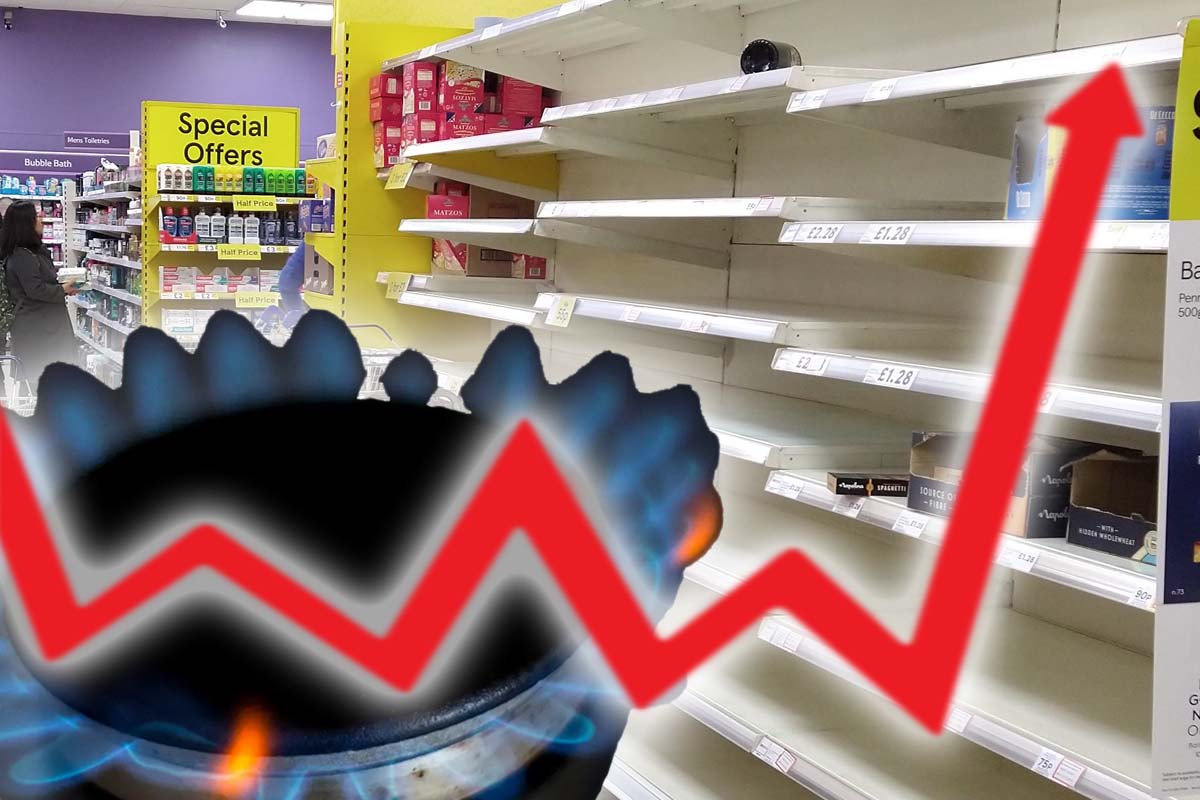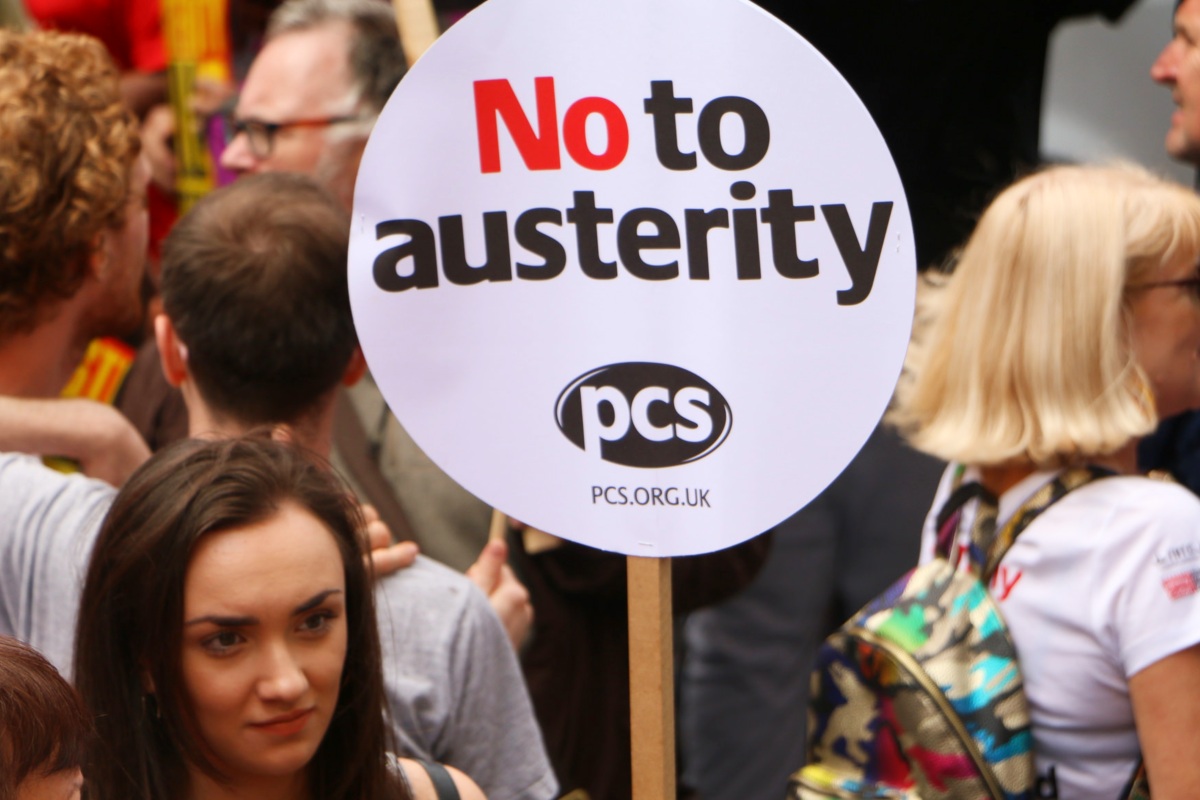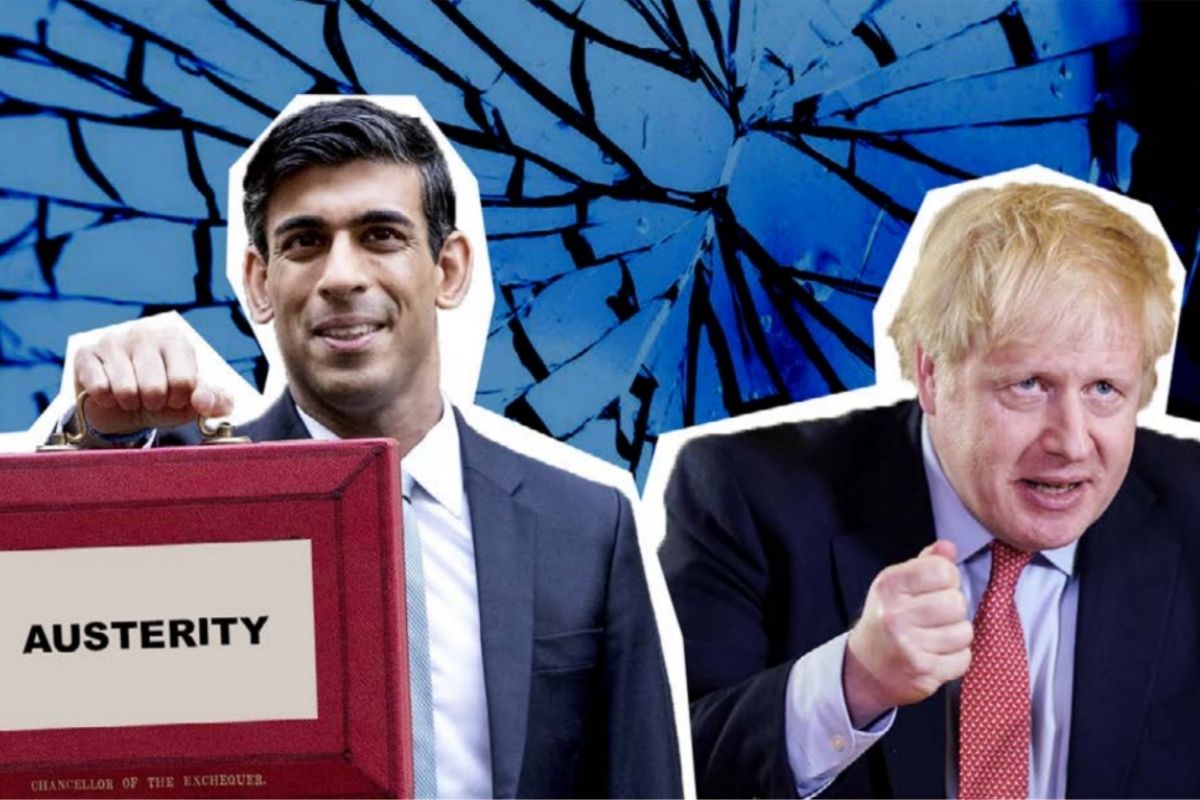Yesterday’s Budget announcement was full of fanfare. But there will be no real recovery for the working class, who are being squeezed on all sides. British capitalism is heading for the rocks. The labour movement must prepare for battle.
Superficial media commentators, looking to generate sensationalist headlines, are fond of playing up the differences between Boris Johnson and Rishi Sunak. But in his latest Budget announcement yesterday, the Tory Chancellor sounded identical to his next door neighbour in Number 10.
As with the Prime Minister’s keynote speech at the recent Tory Party conference, Sunak bluffed and blustered his way through his talk in the House of Commons, with a presentation that was light on details, but loaded with deluded rhetoric about ‘optimism’ and ‘recovery’.
Glossing over all the ominous forecasts about rising inflation, the Chancellor proudly proclaimed that government departments would see a rise in spending this year; that the public sector pay freeze would be lifted; and that low-earning workers would benefit from changes to Universal Credit and an increase in the minimum wage to £9.50 per hour.
All of this, Sunak declared, would be made possible by an improved economic outlook, with the Office for Budget Responsibility (OBR) – the UK’s official ‘independent’ fiscal watchdog – upgrading the country’s growth predictions from 4% to 6.5% for 2021. This, in turn, is estimated to bring in an extra £35bn in government revenue.
But all of these assertions and pledges are generous with the facts, at best; and outright deceitful and false, at worst.
The working class and the poor have little reason for optimism – from this Budget, or from the perspectives for British capitalism in general. There will be no real recovery for them.
The only people who are cheering in response to Sunak’s speech are the billionaires and bankers: the super-rich who will remain untouched, while workers are presented with the bill for their crisis.
Scratching the surface
 You don’t have to scratch very far below the surface to see how fantastical and fabricated Sunak’s latest Budget really is.
You don’t have to scratch very far below the surface to see how fantastical and fabricated Sunak’s latest Budget really is.
Firstly, on departmental spending. The Chancellor triumphantly announced an injection of funds to clear the backlog in the NHS, and to help school students catch up from months of lost learning during lockdowns. But the amounts promised don’t come anywhere near addressing the scale of the problem.
An extra £6bn billion has been allocated to healthcare in order to tackle waiting lists. But these are almost 6 million long – equating to only around £1,000 per patient. And this is before the latest wave of COVID and flu infections hits the NHS, which is already in a state of emergency.
On education, meanwhile, the £2bn assigned to post-pandemic catch-up plans falls far short of the £15bn figure that was recommended by the government’s own education tzar earlier this year.
And, of course, spending increases this year do little to make up for the last decade of austerity, which has left public services decimated and local councils on the brink of bankruptcy.
Public sector pay
 Secondly, on wages. We are told that the pause on public sector pay is coming to an end. But the Treasury has not said what increase public sector workers can expect to receive going forwards.
Secondly, on wages. We are told that the pause on public sector pay is coming to an end. But the Treasury has not said what increase public sector workers can expect to receive going forwards.
The pathetic pay rises offered to workers in healthcare and local government recently, however, provide an indication of what to expect.
NHS staff have rightly rejected an insulting below-inflation increase of 3%, with campaigners and unions correctly demanding 15% to make up for years of real-terms wage stagnation. Similarly, local government workers have dismissed the employers’ 1.75% offer, and are calling for a 10% pay rise instead.
As a result, unions are now moving to ballot members in both sectors to gauge support for industrial action – paving the way for the possibility of a national public sector strike in the new year.
Workers squeezed
 Low-waged workers in the private sector can expect little better. Changes to Universal Credit and the minimum wage will do little to help Britain’s poorest households, who are being squeezed from all sides, with the price of food, fuel, and energy all rising rapidly.
Low-waged workers in the private sector can expect little better. Changes to Universal Credit and the minimum wage will do little to help Britain’s poorest households, who are being squeezed from all sides, with the price of food, fuel, and energy all rising rapidly.
Sunak has said that an extra £2.2bn will be provided to those receiving Universal Credit. But this does little to offset the £6bn cut to welfare made in recent weeks, with the £20-per-week pandemic uplift suddenly being snatched away from millions in need.
In any case, those in unemployment and on the lowest wages will see no improvement in their situation, with the extra UC money only going to those in higher-paid work.
Similarly, the minimum wage increase promised by the Chancellor will in no way be enough to compensate for inflation, which is predicted to rise over winter, peaking at 4.4% next spring.
‘Real pain’
 Low-income families can expect “real pain” in the months ahead, the Institute for Fiscal Studies (IFS) has warned, responding to yesterday’s Budget announcement.
Low-income families can expect “real pain” in the months ahead, the Institute for Fiscal Studies (IFS) has warned, responding to yesterday’s Budget announcement.
“High inflation, rising taxes and poor growth,” stated IFS director Paul Johnson, “will see real living standards barely rising and, for many, falling over the next year.”
According to the Financial Times: “Cornwall Insight, an energy consultancy, has forecast that energy costs will rise by at least 30 per cent from April for homes that consume both electricity and gas, as wholesale gas prices continue to surge, forcing some households into desperate measures such as rationing their heating over the colder months.”
“The cost of shopping is going up,” says Sarah Woolven, a 45-year-old mother of three, speaking to the FT, “and we are struggling even though my husband works full-time.”
This is the brutal and barbaric reality facing ordinary people – a far cry from the bright and upbeat picture painted by the Chancellor in Parliament.
Reality bites
 Finally, on the perspectives for the UK economy. All of Sunak’s promises are based on rosy projections for output, and the assumption of billions in extra tax receipts as a result.
Finally, on the perspectives for the UK economy. All of Sunak’s promises are based on rosy projections for output, and the assumption of billions in extra tax receipts as a result.
For starters, however, the Chancellor conveniently left out all the worst news from the OBR’s predictions: a downgrading in growth for next year; a permanent economic scar equivalent to 2% of GDP; estimates that household disposable income will only reach pre-pandemic levels in the second half of 2023; and warnings that inflation may “rise even higher and turn out to be more persistent” than the 4.4% figure provided in the latest forecasts.
Back in the real world, meanwhile, both businesses and consumers are pulling their hair out at the chaos gripping British capitalism.
Energy companies are dropping like flies. Supermarket shelves are running bare. And industry leaders are panicking over severe labour shortages in a range of key sectors – from haulage, to food and meat production, to hospitality, to construction.
The Financial Times reports that: “Business chiefs across multiple sectors of the economy told MPs last week that they expected shortages to continue well into 2023 and beyond, with inflation now ‘baked in’ to the economy even before any further external shocks, like the power shortages that have caused a rash of factory closures in China, start to feed into the supply chain.”
Levelling down
 All of this flies in the face of Johnson and Sunak’s promise of ‘levelling up’ and creating a ‘high-wage, high productivity economy’.
All of this flies in the face of Johnson and Sunak’s promise of ‘levelling up’ and creating a ‘high-wage, high productivity economy’.
And this is without mentioning the notable elephant in the room during the Chancellor’s Budget speech: the billions in investment needed to tackle the impending climate catastrophe, which world leaders are set to discuss next week at the latest UN climate summit – hosted by none other than Boris Johnson and the UK government.
“The Prime Minister might be making a mistake in thinking that the equilibrium will be restored in a nice way, with wage rises,” says Giles Wilkes, a former industrial and economic policy advisor to Theresa May. “But there are nasty ways the market can clear itself – higher prices, lower output, more imports and lost UK production capacity.”
Or, as one business owner succinctly put it: “So much for Boris’s ‘high-wage/high-skilled’ economy – it will certainly be a high-price economy.”
Winter is coming
 Most importantly, however, is the simple question of ‘who pays?’
Most importantly, however, is the simple question of ‘who pays?’
The answer from Sunak’s latest Budget announcement is clear: under the Tories, it is the working class who are going to be made to pay for this crisis, through regressive tax increases and real-terms cuts to wages. Meanwhile, the bankers and bosses are laughing all the way to the bank.
Make no mistake about it – austerity is not over. Johnson’s government is no different from any of its Tory predecessors. As ever, this is a government of the rich, for the rich, by the rich.
Winter is coming – a winter of discontent. The labour movement must prepare for battle.
Now is the time to mobilise workers and youth in defence of jobs, pay, and public services – and to go on the offensive by fighting the cuts with bold socialist policies.






